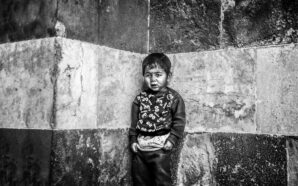Every day, mothers, daughters, sisters labor on, remaining unrecognized, unacknowledged toiling rigorously for the continuation of societies and communities all across the world. While hundreds of thousands walk miles and miles to get water for entire families, others take care of the elderly at home and yet there many more who scurry off to work after dropping kids to school. Millions of examples can be cited not just to celebrate Mother’s Day; but also to actually diagnose the ailment of women’s economic disempowerment.
A woman’s efforts and hard work – this very unequal distribution of care responsibilities that are discriminatory; possessing stereotypical gender roles – go unnoticed or are shoved under the carpet by hegemonic masculinities existing in every society.
According to the OECD, around the world, women spend two to ten times more time on unpaid care work than men. The problem is not just that the female gender devote disproportionately more time than their male counterparts doing unremunerated care work, viewing care responsibilities in biased, gendered scenarios or such work being considered a woman’s prerogative – it is that and so much more!
Looking closely, it is indeed an infringement of a woman’s basic human rights, snatching away her economic empowerment and therefore furthering feminisation of poverty and the numerous vulnerabilities stemming from it. On the flipside, it also impacts markets resulting in them (the markets) working below their potential, creating a huge gap when it comes to sustainability of communities.
The Shriver Report states: “According to the U.S. Government Accountability Office, or GAO, women over the age of 65 are twice as likely to live in poverty as men of the same age. This is not only because women tend to live longer, nor is it only because of job discrimination. A major reason is that most of these women were, or are, full- or part-time caregivers. The failure of U.S. policies to give visibility, value, and support to care work is also one of the reasons why children in female-headed families are so disproportionately poor. This is also a major reason why the United States has the highest child poverty rate of all developed nations except for Romania.”
Looking closely, it is indeed an infringement of a woman’s basic human rights, snatching away her economic empowerment and therefore furthering her poverty and the numerous vulnerabilities stemming from it. On the flipside, it also impacts markets resulting in them (the markets) working below their potential, creating a huge gap when it comes to sustainability of communities.
An issue of a global scale, ‘cooking, cleaning, fetching water, tending to the old and the young’ etc. are rarely – if ever – deemed valuable domestically and communally speaking or as far as policies and legislations are concerned. Many real and even whimsical reasons can be attributed to that, starting with patriarchal belief systems, considering women as tools of economic production to policy makers (usually comprising of men) attempting not to tread into murky waters of care-work: the latter being complicated as these are chiefly governed by social norms, communal expectations, culture and customs.
But what is missing is the fundamental link or the interrelationship between care work – also known as social reproduction – and economic activity. According to American critical theorist and feminist, Nancy Fraser: “I understand this as one aspect of a ‘general crisis’ that also encompasses economic, ecological and political strands, all of which intersect with and exacerbate one another. The social-reproduction strand forms an important dimension of this general crisis but is often neglected in current discussions, which focus chiefly on economic or ecological dangers. This ‘critical separatism’ is problematic; the social strand is so central to the broader crisis that none of the others can be properly understood in abstraction from it.”
Care work is central to sustainable development as it ‘underpins and underlies all of development progress,’ says Deepta Chopra, a Research Fellow at the Institute of Development Studies (IDS).
Any discussion on sustainability, Sustainable Development Goals (SDGs) or economic growth is redundant if care–work is not brought into the bigger picture. Time has come to rethink world economics by actually understanding the economics of care work. Perhaps only then a ‘New Gender Order’ can shape a better, more just world.











